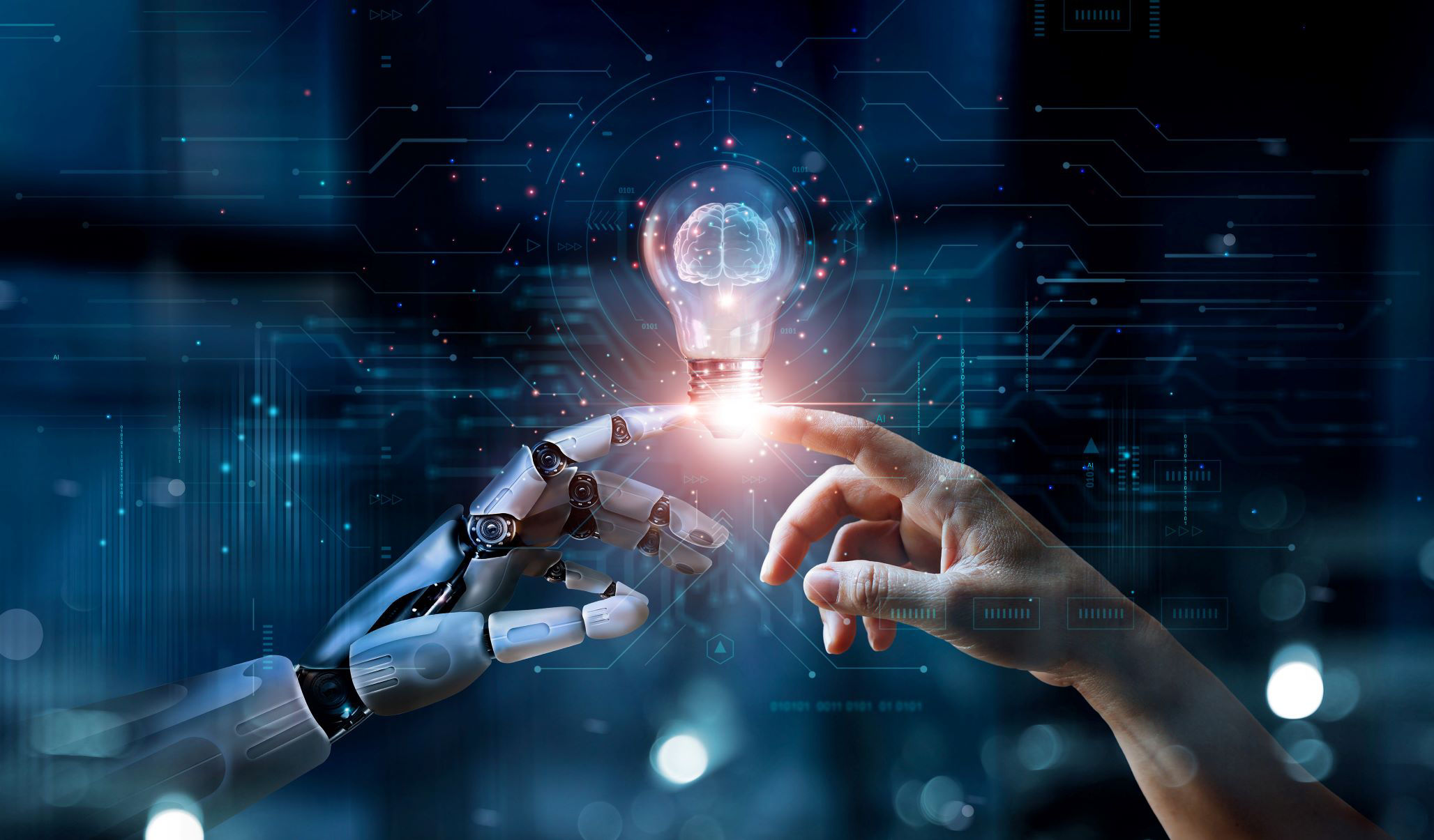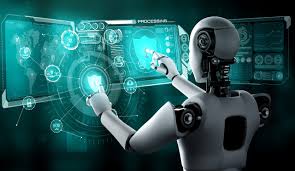eCommerce AI | Web Apps | AR/VR Software – ECA Tech
Call Us
+1-416-855-0322
Contact Us
- Home
- AI Programmer: 8 Great Tips
AI Programmer: 8 Great Tips

April 13, 2025 - Technology
Artificial Intelligence (AI) is transforming the landscape of technology, industries, and societies. From automating mundane tasks to creating intelligent systems capable of making decisions, AI has become one of the most significant technological advancements of the 21st century. At the forefront of this transformation is the role of the AI programmer. AI programmers are the architects who build and develop the algorithms, models, and systems that enable machines to learn, adapt, and perform tasks that traditionally required human intelligence.
In this article, we will explore the role of an AI programmer, the skills required to succeed in the field, the challenges faced by AI developers, and the future of AI programming. Whether you’re an aspiring AI programmer or someone interested in the transformative potential of AI, this guide will provide valuable insights.
- Drive growth
- Optimize your online store
- Leverage eCommerce analytics
- Fine-tune your existing strategy
What is an AI Programmer?
An AI programmer is a developer or engineer who specializes in creating and improving AI systems. This includes tasks such as designing machine learning algorithms, developing neural networks, implementing natural language processing (NLP) techniques, and building computer vision systems. The primary goal of an AI programmer is to create intelligent systems that can perform tasks autonomously, learn from data, and adapt to new situations.
The job of an AI programmer is multi-faceted and requires a deep understanding of programming, mathematics, data science, and machine learning. AI programmers often work with vast amounts of data and use advanced algorithms to train models that can recognize patterns, make predictions, or perform complex tasks without explicit human intervention.
The Role of an AI Programmer in the Modern Tech Landscape
AI has become a driving force in numerous industries, including healthcare, finance, manufacturing, automotive, and entertainment. As a result, the demand for skilled AI programmers has skyrocketed. But what exactly does an AI programmer do in the real world? Let’s break it down:
1. Building Machine Learning Models
A key responsibility of an AI programmer is developing machine learning models that can analyze large datasets and identify patterns. These models are the backbone of many AI systems, and they can be used in applications such as predictive analytics, recommendation systems, and speech recognition.
An AI programmer may choose from a variety of machine learning techniques, including supervised learning, unsupervised learning, reinforcement learning, and deep learning, depending on the problem at hand.
2. Implementing Neural Networks
Neural networks are a type of machine learning model inspired by the human brain. These networks consist of layers of interconnected nodes that process and analyze data. An AI programmer must have expertise in designing and optimizing these networks for various applications such as image classification, natural language understanding, and voice recognition.
Deep learning, a subset of machine learning, relies heavily on neural networks to achieve state-of-the-art performance in tasks like image recognition and autonomous driving. AI programmers working with deep learning frameworks like TensorFlow and PyTorch are at the forefront of these innovations.
3. Natural Language Processing (NLP)
NLP is a field of AI that focuses on enabling machines to understand and process human language. This technology powers everything from virtual assistants like Siri and Alexa to chatbots and sentiment analysis tools. An AI programmer working in NLP develops algorithms and models that can interpret text and speech, extract meaning, and generate responses.
NLP is one of the most complex areas of AI because human language is full of nuances, idioms, and ambiguities. AI programmers in this space need to stay on top of new advancements in computational linguistics, syntax, and semantics.
4. Developing Computer Vision Systems
Computer vision allows machines to interpret and make decisions based on visual data. This can range from simple tasks like recognizing objects in images to complex activities such as analyzing video footage in real-time for facial recognition or autonomous driving.
An AI programmer in the computer vision field works with image processing, object detection algorithms, and deep learning techniques to help machines “see” and make sense of the visual world. This technology is widely used in industries such as healthcare (medical imaging), retail (automatic checkout systems), and security (surveillance systems).
Key Skills Required for an AI Programmer
To become a successful AI programmer, one needs a broad set of skills, including:
1. Programming Languages
An AI programmer must be proficient in programming languages like Python, Java, C++, and R. Python, in particular, is a popular choice because of its simplicity and extensive libraries for machine learning and AI development, such as TensorFlow, Keras, and Scikit-learn. The ability to write efficient and optimized code is crucial for building high-performance AI models.
2. Mathematics and Statistics
A deep understanding of mathematics is essential for an AI programmer. Concepts such as linear algebra, calculus, probability, and statistics are foundational to developing and fine-tuning machine learning algorithms. For example, understanding gradient descent and optimization techniques is crucial for training deep learning models.
3. Machine Learning and Data Science
An AI programmer needs to be well-versed in machine learning concepts, including supervised and unsupervised learning, feature selection, overfitting, cross-validation, and model evaluation metrics. Additionally, data preprocessing and feature engineering are vital skills that help prepare raw data for use in machine learning models.
4. Knowledge of AI Frameworks and Libraries
There are many specialized tools and libraries that AI programmers use to streamline the development process. Frameworks like TensorFlow, PyTorch, and MXNet make it easier to build and train machine learning models, while libraries like OpenCV help with computer vision tasks. An AI programmer should be comfortable using these tools to implement and optimize AI algorithms.
5. Problem-Solving and Analytical Thinking
AI programming requires a strong ability to analyze problems and devise creative solutions. Whether working on a recommendation engine or developing an autonomous system, an AI programmer must break down complex challenges into manageable components and design algorithms that can address them effectively.
The Challenges Faced by AI Programmers
Despite the incredible potential of AI, AI programmers face a variety of challenges in their work:
1. Data Quality and Quantity
AI models are heavily reliant on data, and the quality and quantity of the data can significantly affect the performance of a model. An AI programmer often spends a considerable amount of time cleaning, preprocessing, and augmenting data to ensure it is suitable for training. Inaccurate or incomplete data can lead to poor model performance or biased predictions.
2. Model Overfitting and Underfitting
Achieving the right balance between overfitting (where a model is too tailored to the training data and fails to generalize to new data) and underfitting (where a model is too simplistic and fails to capture the underlying patterns) is a constant challenge for AI programmers. Tuning hyperparameters and using techniques like regularization are essential to prevent these issues.
3. Computational Resources
Training large AI models, particularly deep learning models, can be computationally expensive and time-consuming. AI programmers often need access to powerful hardware, such as GPUs or cloud computing resources, to train their models efficiently. Managing these resources and optimizing code for performance is a key aspect of the job.
4. Ethical Considerations
As AI systems become more integrated into society, ethical concerns around bias, fairness, transparency, and accountability have come to the forefront. AI programmers must ensure that their models are fair and unbiased, particularly in sensitive applications like hiring, criminal justice, and healthcare.
The Future of AI Programming
The future of AI programming is incredibly exciting, as advancements in AI continue to push the boundaries of what is possible. Here are some trends and opportunities that AI programmers should keep an eye on:
1. AI in Automation
AI is increasingly being used to automate tasks across industries, from customer service chatbots to automated driving systems. AI programmers will play a key role in developing these systems and ensuring they can operate autonomously and efficiently.
2. Explainable AI
As AI systems become more complex, there is a growing need for explainable AI (XAI) that can provide transparent and understandable insights into how decisions are made. AI programmers will need to focus on creating models that are not only accurate but also interpretable by humans.
3. AI in Healthcare
AI has the potential to revolutionize healthcare by enabling personalized medicine, improving diagnostics, and optimizing treatment plans. AI programmers will be at the forefront of developing systems that can analyze medical data, detect diseases, and even assist in drug discovery.
4. Ethical AI Development
As AI continues to impact every aspect of our lives, there will be a greater emphasis on ethical AI development. AI programmers will need to ensure that AI systems are designed to prioritize fairness, accountability, and transparency, addressing societal concerns around bias and discrimination.
Conclusion
The role of the AI programmer is one of the most exciting and rapidly evolving positions in the tech industry. With AI continuing to advance and integrate into every facet of our lives, the demand for skilled AI programmers is expected to grow. By mastering the necessary skills and staying informed about the latest trends, aspiring AI programmers can contribute to the development of groundbreaking technologies that will shape the future.
If you’re looking to embark on a career as an AI programmer, now is the perfect time to dive in. The field offers boundless opportunities for those who are passionate about solving complex problems and creating intelligent systems that can change the world.

The Role of Ai Programmers
As the demand for AI continues to surge, AI programmers are increasingly sought after by companies across various sectors, from tech giants to startups. With AI’s ability to automate complex processes, improve efficiencies, and unlock new opportunities, businesses are eager to harness its potential. AI programmers not only build the algorithms that drive AI systems but also ensure they are scalable, robust, and adaptable to future advancements. The growing need for AI solutions means that AI programmers must continually evolve, keeping up with emerging technologies like quantum computing, AI ethics, and new machine learning frameworks. This constant innovation within the field provides an exciting and dynamic career path for those passionate about shaping the future through intelligent technologies.
By clicking Learn More, you’re confirming that you agree with our Terms and Conditions.

FAQ
1. What does an AI programmer do?
An AI programmer designs, develops, and optimizes algorithms and models that allow machines to perform tasks that typically require human intelligence. This includes tasks like building machine learning models, implementing neural networks, developing natural language processing systems, and creating computer vision algorithms. They work with large datasets and use programming languages, statistical techniques, and AI frameworks to create systems that can learn, adapt, and make decisions autonomously.
2. What skills are required to become an AI programmer?
To become a successful AI programmer, you’ll need strong programming skills (especially in Python, Java, or C++), a solid understanding of mathematics (including linear algebra, calculus, and probability), and knowledge of machine learning techniques. Familiarity with AI frameworks like TensorFlow, PyTorch, and Scikit-learn is also essential. A deep understanding of data science, problem-solving skills, and the ability to work with large datasets are crucial for success in this field.
3. What are the most popular programming languages for AI programmers?
The most commonly used programming languages for AI development are Python, R, Java, and C++. Python is particularly popular due to its simplicity and the vast array of AI libraries and frameworks available, such as TensorFlow, Keras, and Scikit-learn. R is often used in statistical analysis and machine learning, while Java and C++ are employed for performance-critical AI applications.
4. How does an AI programmer deal with data?
An AI programmer works with large amounts of data to train machine learning models. They are responsible for cleaning and preprocessing the data to ensure it’s suitable for modeling. This includes tasks such as handling missing values, normalizing data, and performing feature engineering. Once the data is prepared, the AI programmer can train models and evaluate their performance using various metrics. Managing data quality is key to building accurate and effective AI systems.
5. What industries need AI programmers the most?
AI programmers are in high demand across a wide range of industries. Key sectors include technology, healthcare, finance, automotive, and entertainment. In technology, AI programmers help create applications for automation, security, and cloud computing. In healthcare, AI is used for diagnostic tools, personalized medicine, and drug discovery. In finance, AI is leveraged for algorithmic trading, fraud detection, and risk analysis. The automotive industry relies on AI for autonomous driving systems, while entertainment uses AI for content recommendations and personalized experiences.
6. What is the future of AI programming?
The future of AI programming is incredibly promising, with AI expected to continue transforming industries and daily life. As technologies like deep learning, reinforcement learning, and AI-driven automation evolve, the role of an AI programmer will grow even more critical. Emerging areas like explainable AI, quantum computing, and AI ethics will require new innovations and techniques, providing ample opportunities for AI programmers to push the boundaries of what’s possible. As AI becomes more embedded in society, AI programmers will play a key role in ensuring the ethical, fair, and transparent use of these technologies. To start a career as an AI programmer, focus on learning programming, mathematics, machine learning concepts, and AI frameworks.
